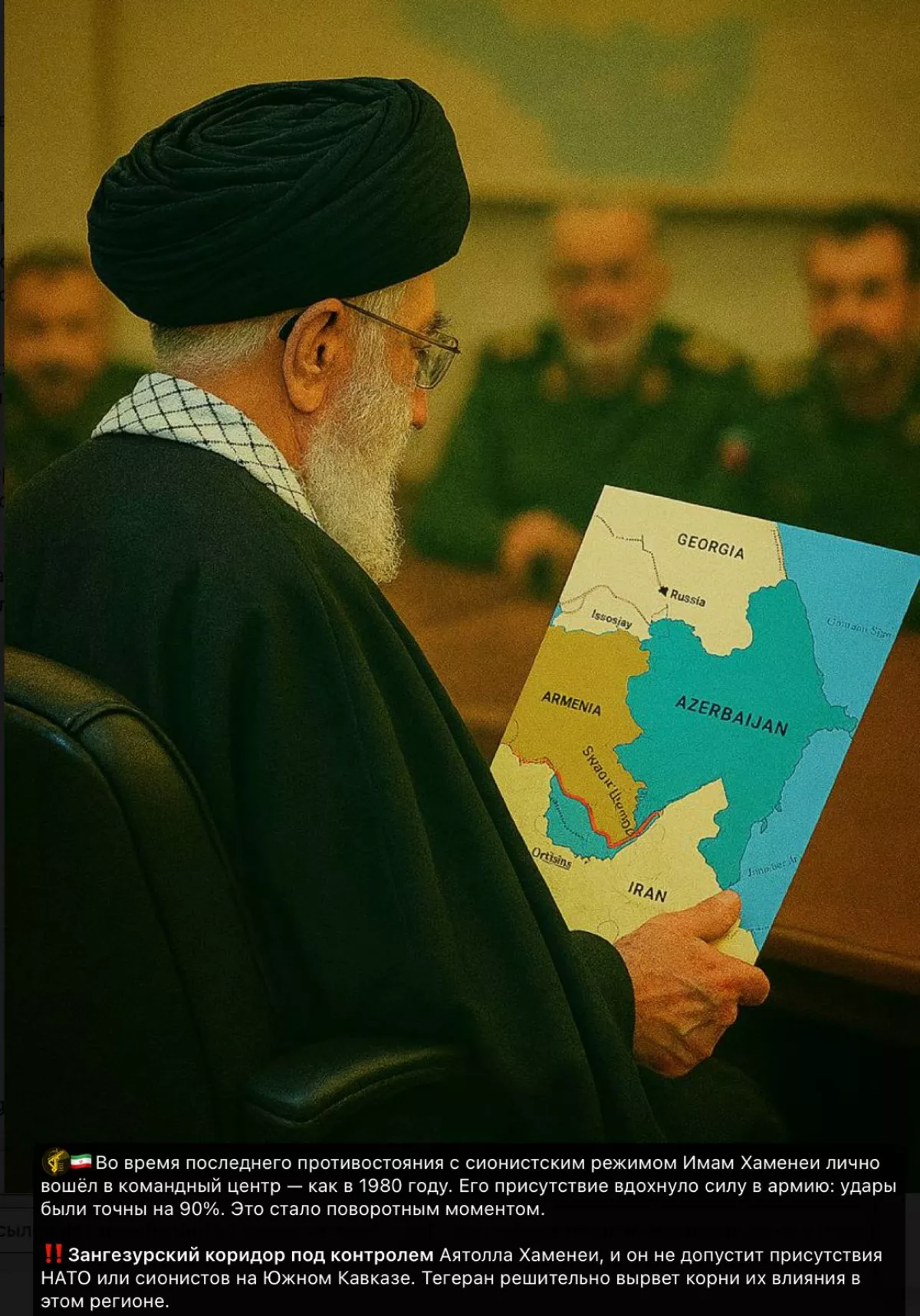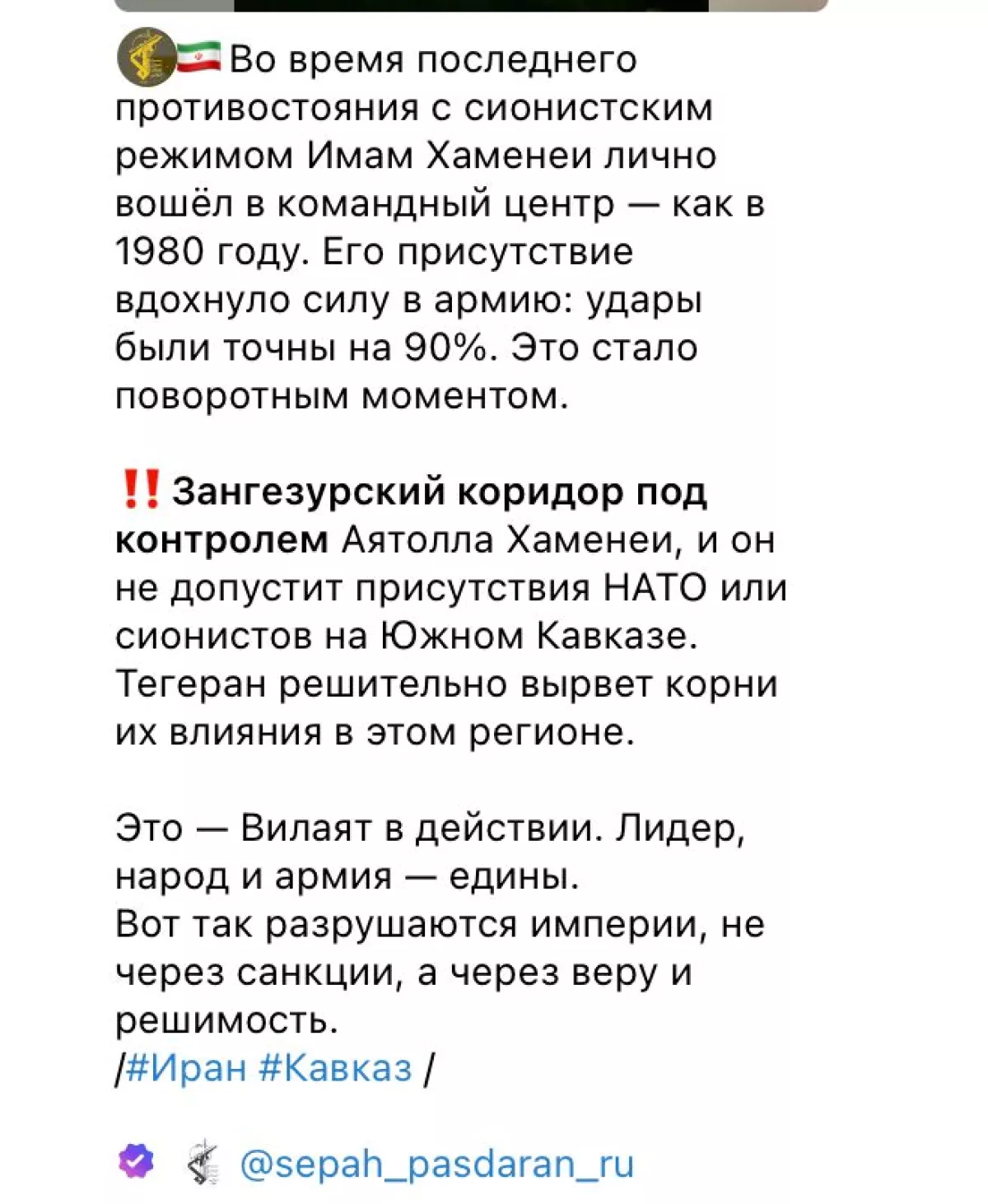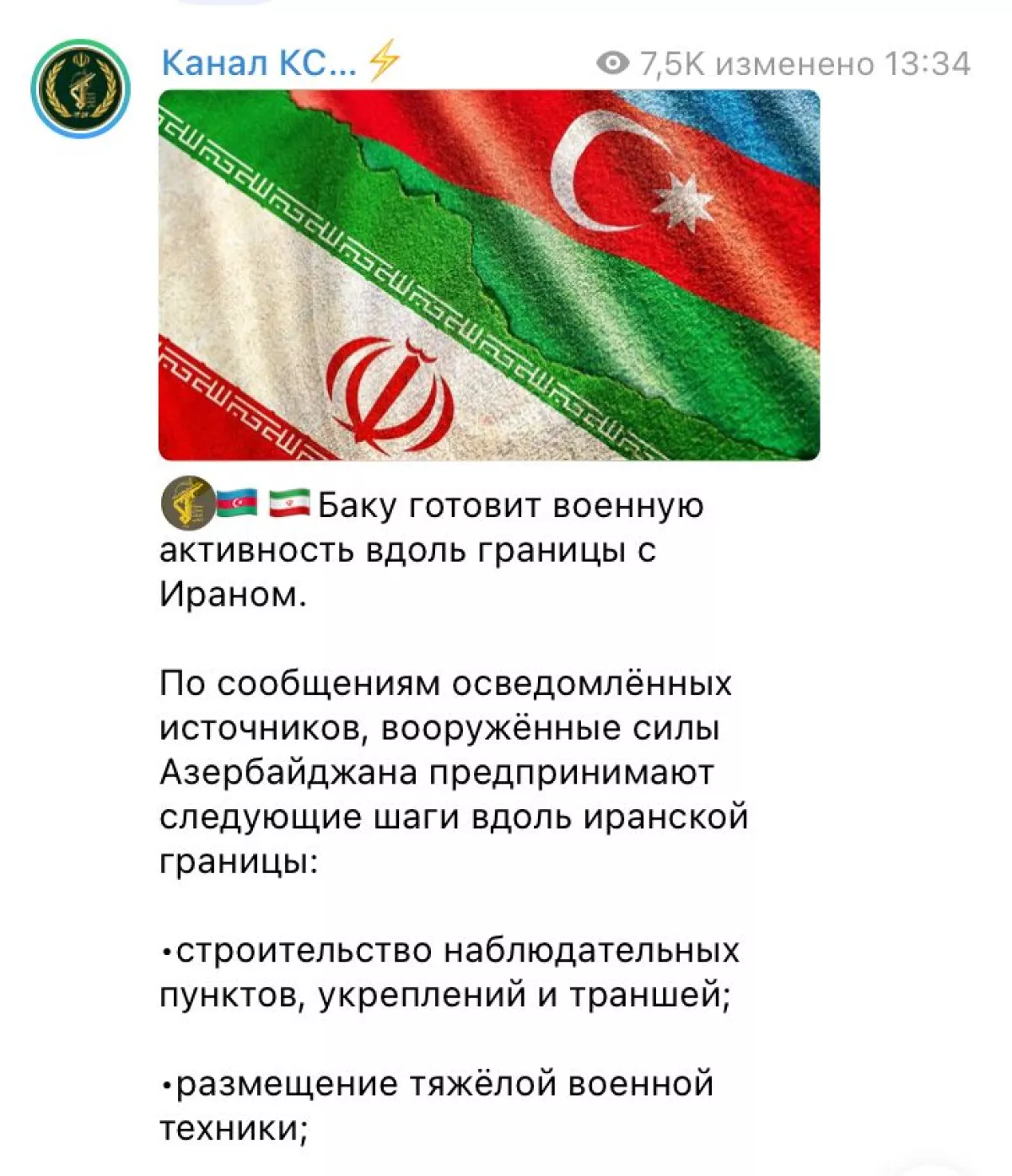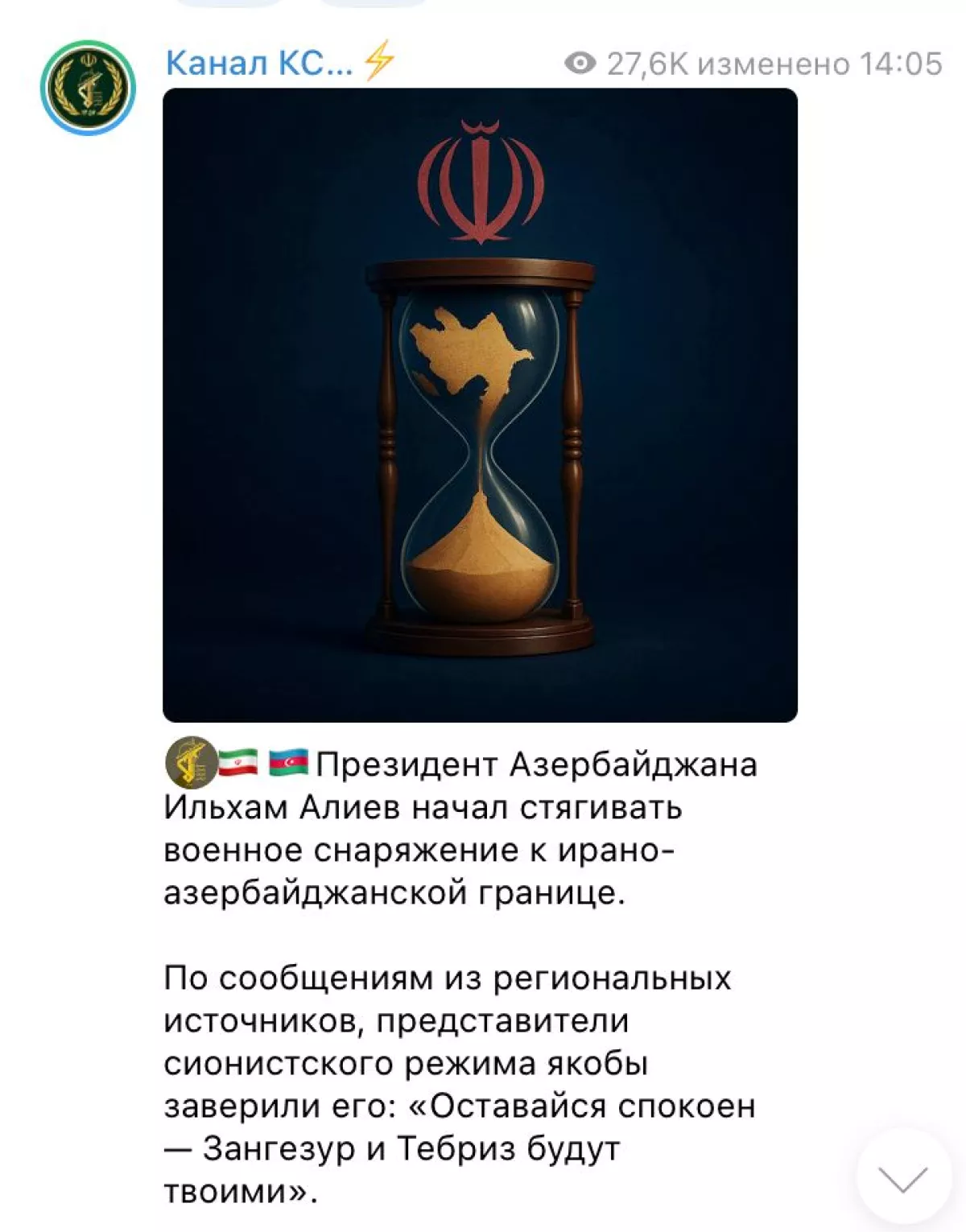Fake news attack targeting Azerbaijan IRGC-linked channel, anonymous sources, and Russian involvement
The Telegram channel Sepah_pasdaran_ru, which positions itself as an unofficial platform close to Iran’s Islamic Revolutionary Guard Corps (IRGC), has launched a massive campaign to spread disinformation against Azerbaijan. An analysis of its content over recent months reveals a clear trend: Azerbaijan has become the main target of its information attacks.
The channel systematically and methodically floods its audience with numerous accusations against Azerbaijan, none of which are based on facts. For instance, it claims that Israel is allegedly transferring heavy military transport aircraft loaded with weapons to Baku.
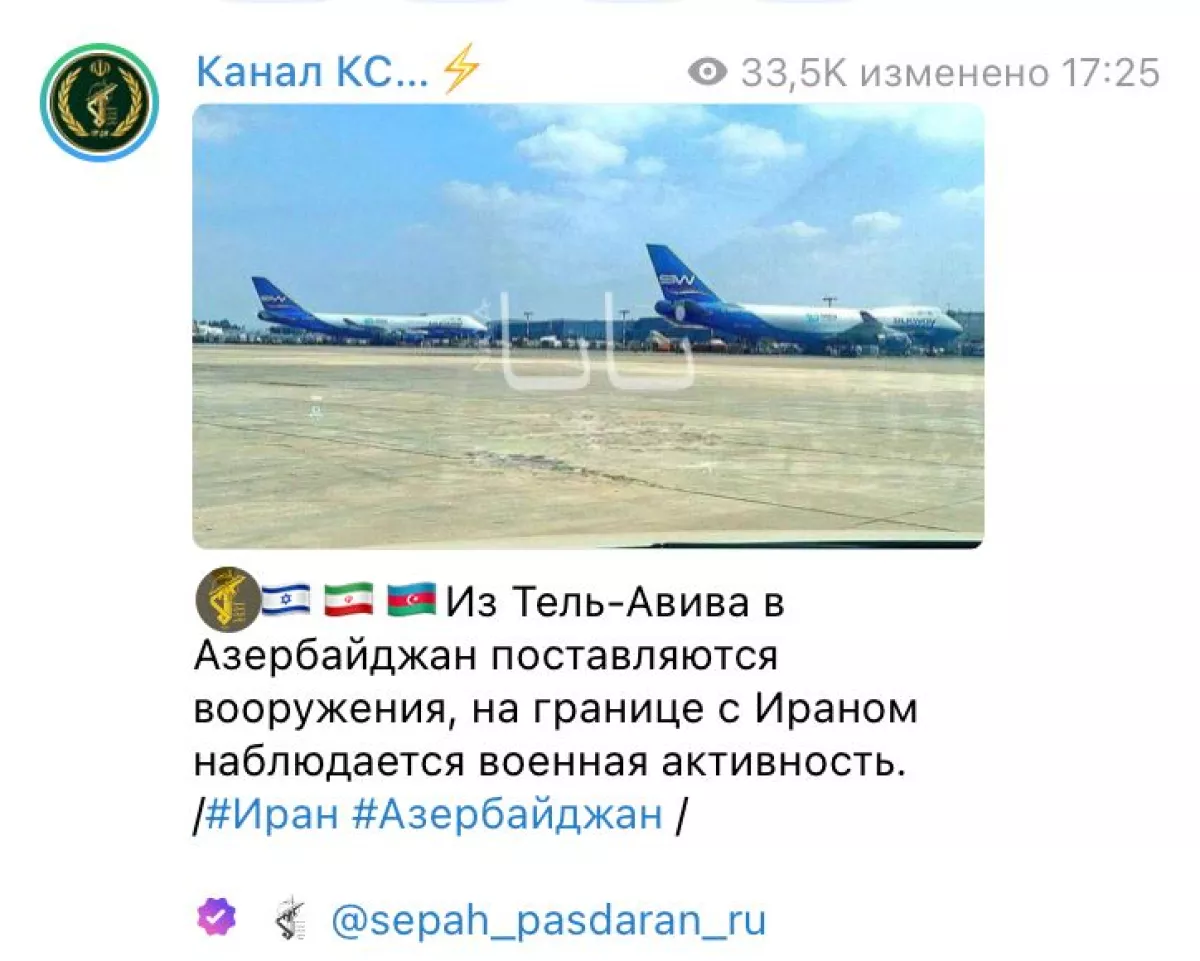
These fakes are accompanied by provocative visual materials—maps overlaid with flags, images of military equipment taken out of context, and hints at military activity along the Iran-Azerbaijan border.
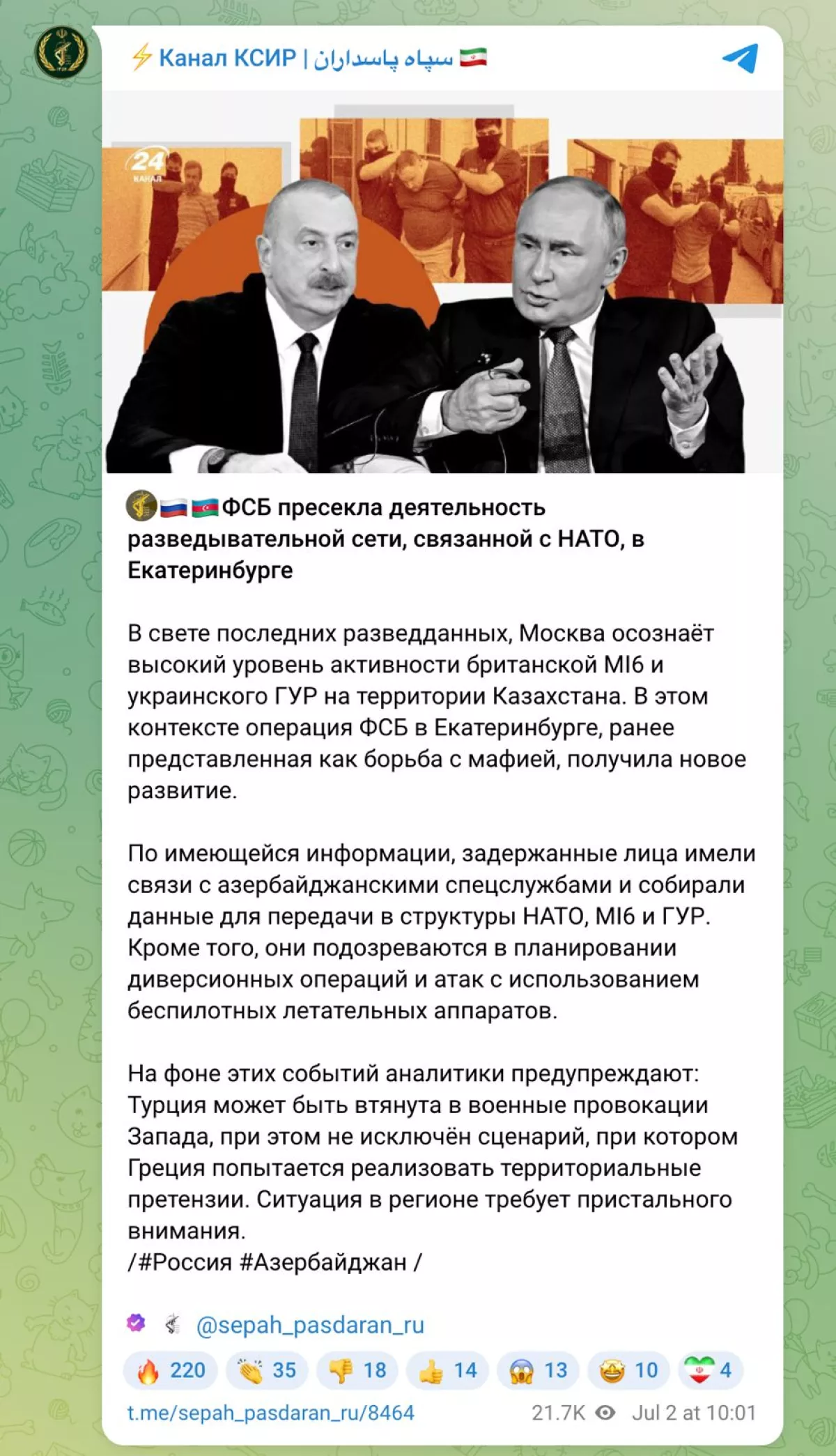
Some posts go even further, claiming that Azerbaijan is allegedly involved in coordinating sabotage operations against Russia in Yekaterinburg and providing military assistance to Ukraine.
These narratives are carefully intertwined with political rhetoric designed to create in the channel’s audience an image of Azerbaijan as a "tool of the Zionists" and a threat to Iran and Russia.
Insinuations about the Zangezur corridor are also employed, with the channel asserting that this issue is under the special control of the Supreme Leader (Rahbar) himself and must not fall under the influence of NATO or Israel. The messages contain hints of military intervention and threats directed at Baku—from warnings like "stay calm, Zangezur and Tabriz will not be yours" to outright statements such as "Tehran will uproot Zionist influence in the South Caucasus."
Notably, none of these materials is supported by facts. The so-called “sources” cited are anonymous and, as a rule, reference nonexistent analytical reports, messages, or unreliable publications from little-known websites.
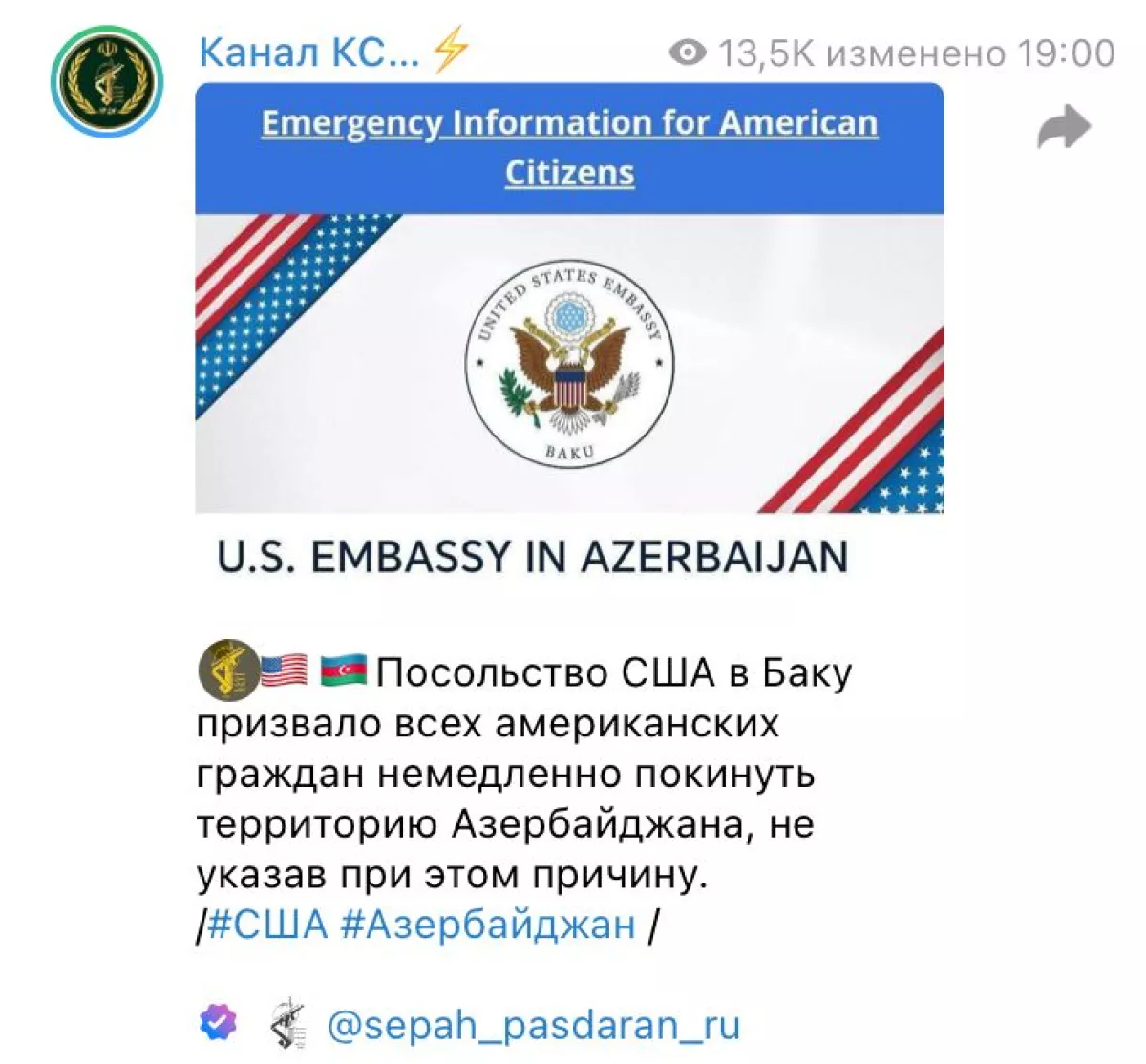
Officially, it is stated that the IRGC does not have its own Telegram channel. This raises the question: then, from where is the Sepah_pasdaran_ru channel operated? Geographic and technical analysis reveals interesting details. According to the specialised service HotTG, the channel was created and is managed from Russian territory. This fact is further confirmed by the channel’s content itself: a significant portion of reposts in recent months come from Russian propaganda outlets such as Tsargrad.
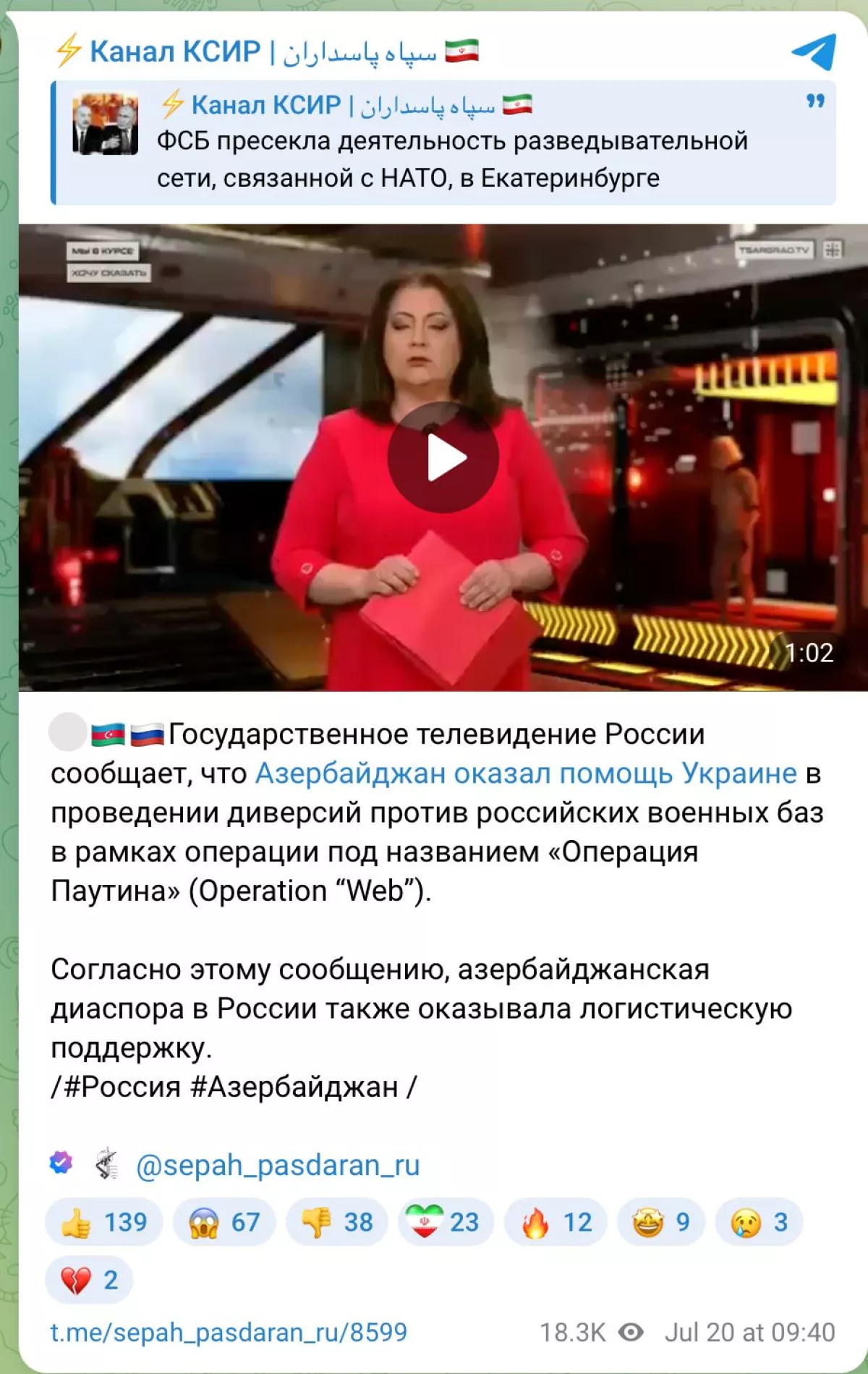
This became especially evident after the incident involving the AZAL plane and events in Yekaterinburg, when the channel began to more actively amplify narratives originating from Telegram communities controlled by Russian intelligence agencies. Incidentally, there are well-founded suspicions that the forces (read: relevant structures) behind this channel also use Armenian proxies to launch attacks on Azerbaijan.

All of these point to the coordination of a hybrid information campaign against Azerbaijan. It is hard to miss the convergence of interests between certain circles in Moscow and Tehran, who benefit from fostering a hostile environment around Baku and discrediting it as an independent player in the South Caucasus. In a context where Russia is losing ground in the region and Iran reacts painfully to the strengthening Azerbaijan-Israel partnership, such disinformation operations become part of a broader strategy of pressure.
The Azerbaijani audience must clearly understand that the information attacks conducted through Sepah_pasdaran_ru are a tool of psychological warfare, aimed not only at undermining the country’s image but also at attempting to influence its foreign policy course. The spread of such fakes is no accident — it is a planned operation designed to create an atmosphere of distrust between Baku and neighbouring states, as well as to drive a wedge between Azerbaijan and its partners.
One more important nuance: if the claims about coordination of disinformation are unfounded, then the relevant Iranian authorities must provide a public explanation as to why a channel presenting itself as close to the IRGC is spreading knowingly false information and conducting a campaign against Azerbaijan and its leadership. The absence of such a response only reinforces suspicions that this is a hybrid attack orchestrated in tandem with certain Russian entities.
Baku’s response to these actions should remain measured yet resolute. It is clear that behind the narratives pushed by such channels lie attempts to drag Azerbaijan into external conflicts and weaken its position in the region. Active monitoring of these channels and exposing their fake content is a crucial part of the country’s information security.




